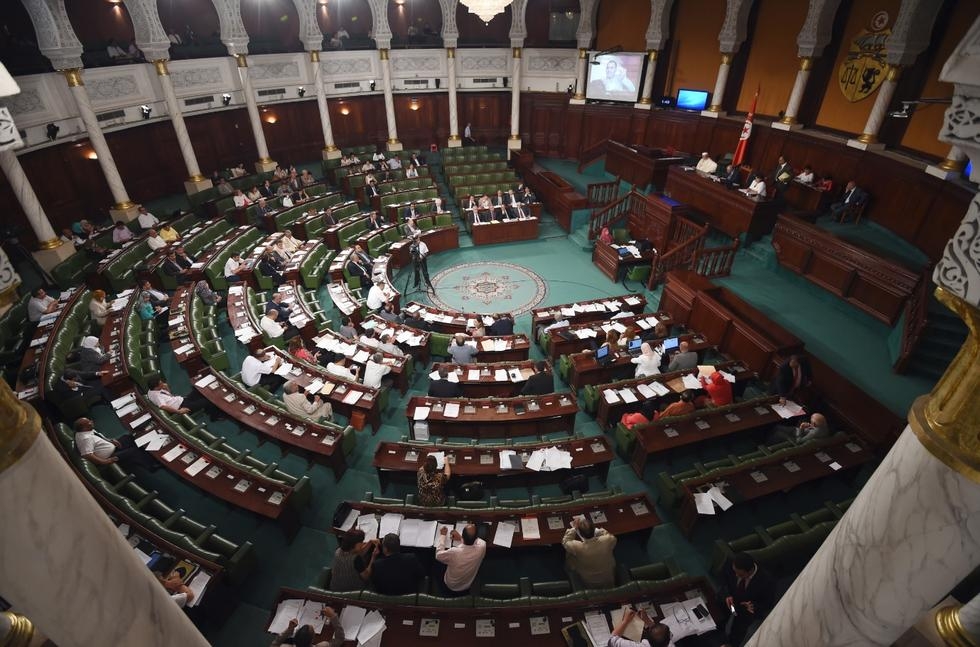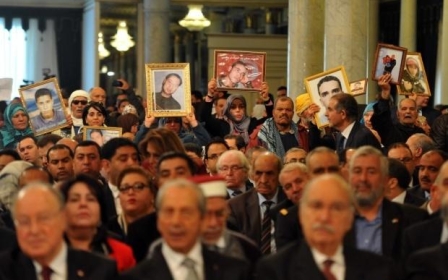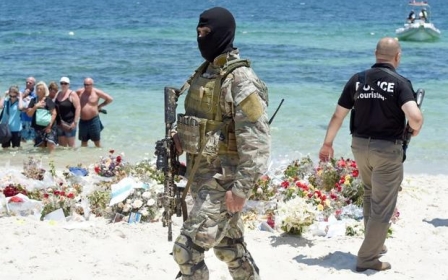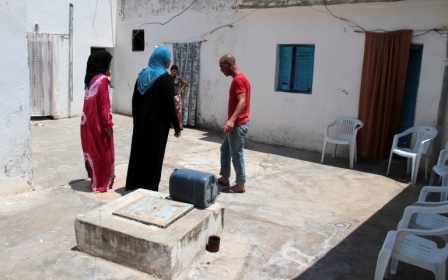ANALYSIS: Is Tunisia’s success still ignored by Washington?

Many in Washington regard Tunisia as the only success story that has come out of the Arab Spring. Yet the small North African country receives a fraction of the military and economic support that the US provides Egypt and Jordan.
With Tunisia now at a crossroads, policymakers in Washington are pushing for the US to bolster support to help Tunisia in its efforts to counter extremism. But Tunisia’s apparent lack of experience in navigating the politics of Washington, combined with concerns that Tunisia’s young democracy might be regressing in the face of extremist threats remain large hurdles to be overcome.
“We definitely have enough support in Congress,” Mongi Dhaouadi, a Tunisian-American involved in the lobbying efforts on behalf of Tunisia, told Middle East Eye on Friday after holding congressional meetings earlier in the day. “But we don’t know what’s going to happen in the Senate until after (summer) recess.”
In May, during Tunisian President Beji Caid Essebsi's visit to Washington, president Obama indicated Washington’s intention to designate Tunisia as a major non-NATO ally of the US. The White House has also proposed a bill to send Tunisia $134.4mn in total aid, including military aid. But the bill is now stuck in the Senate, which approved only $86.9mn.
The numbers may seem small compared to the billion dollars or so that the US gives Egypt and Jordan every year, but it has the potential to grow. Already the figure proposed by the White House is twice what it was last year, and supporters of increasing aid to Tunisia cite what they call the country’s unique position in the global fight against extremism.
“It is absolutely essential we provide security help to Tunisia,” said Scott Mastic, director of MENA region at the Washington-based International Republican Institute, which examines democratic movements around the world. He was speaking at a press conference on Tunisia in late July. He explained that he supports increasing aid to Tunisia not merely to help the country counter the threat of extremism domestically, but also because “it’s important to recognise that Tunisia’s democracy - in and of itself - is a threat to Islamic State”. He added that both the Pentagon and the State Department were in agreement on this.
Former State Department Official on Counterterrorism Communications Alberto Fernandez, who was also present at the Tunisia press conference, said Tunisia currently represents the only viable model in the Arab world, which faces something of a Hobson’s Choice between two dreadful paradigms: extremism or the tyrannical state.
“The new model is best typified by Tunisia, it’s the one that’s most like us, most promising,” said Fernandez, lamenting the little support that Tunisia has been receiving.
“It is testimony that there’s more inertia, power, and money behind the jihadist model than there is behind the important example that Tunisia represents,” he said, making reference to the enormous financing that Islamic State (IS) and other groups have received.
But there are concerns about Tunisia’s ability to maintain the delicate balance between countering extremism and protecting its nascent democracy. Earlier this year, extremists struck at the heart of the Mediterranean country’s tourism industry in two separate attacks that included a beach resort and a museum, killing dozens of tourists. IS claimed responsibility for both attacks.
The Tunisian government swiftly proposed new laws to counter the growing threat of terrorism, but critics in Washington caution that the proposal already infringes on the delicate freedoms that Tunisia has achieved since the Arab Spring.
“We’ve seen newly proposed laws with real concerns of an overly broad definition of counter-terrorism,” said The International Republican Institute's Scott Mastic.
These new laws threaten to jail for life protesters who “disrupt government business,” and propose a 15-day time period that a detainee can be held without due process and access to a lawyer.
“And it’ll be very important not to see this state of emergency renewed in a continued way so as not to be ongoing,” added Mastic.
Another concern is that it is not clear how efficiently Tunisia is addressing economic inequity between its interior and the relatively thriving coastline. When Tunisian street vendor Mohamed Bouazizi self-immolated in December 2010, sparking the Arab Spring, he symbolised the frustrations of many people in his country, but especially of those who live in the interior.
Tunisia’s interior also now seems to be fertile ground for recruitment of groups like IS. Over 3,000 Tunisians have joined IS in Syria and Iraq, and at least as many have spilled over into Libya, according to intelligence firm Soufan Group and UN data.
Asked what the country intended to do about this ongoing threat, and whether domestic programmes were in place to lure these fighters back home and rehabilitate them, Tunisian officials downplayed the threat.
“I would challenge these numbers,” said Kais Darragi, deputy chief of Mission at the Tunisian Embassy in Washington. He added that his country was already implementing some programmes for rehabilitation.
Ridding the country of its legacy of corruption also appears problematic.
Dhaouadi, who follows closely the appropriation of funds already received by Tunisia, said there is a lot of confusion about how the money is handled once it arrives there.
“It definitely raises eyebrows,” he said.
Such concerns will probably continue for some time, perhaps carrying more weight than similar concerns pertaining to Egypt and Jordan, both of which have more gravitas in Middle East policy. But this is something that Tunisia is trying hard to change.
“We have to break from the thinking that Tunisia is a minor country and doesn’t have the impact that it needs,” said Darragi of the Tunisian Embassy. “It’s always punched above its weight ... and could serve as that kind of partner that will help the US promote its values.”
For now, the reason that the bill proposing aid to Tunisia is stuck in the Senate’s Appropriation Committee may be as mundane as Tunisia not having the lobbying power, putting it at a gross disadvantage in a town where political favour is required to get virtually anything done.
“We’ve advised them to hire a lobbying firm, because currently there are no groups or organisations working on the Hill on behalf of Tunisia,” said Dhaouadi, adding that his lobbying efforts are small scale. “Hopefully this will change.”
New MEE newsletter: Jerusalem Dispatch
Sign up to get the latest insights and analysis on Israel-Palestine, alongside Turkey Unpacked and other MEE newsletters
Middle East Eye delivers independent and unrivalled coverage and analysis of the Middle East, North Africa and beyond. To learn more about republishing this content and the associated fees, please fill out this form. More about MEE can be found here.




